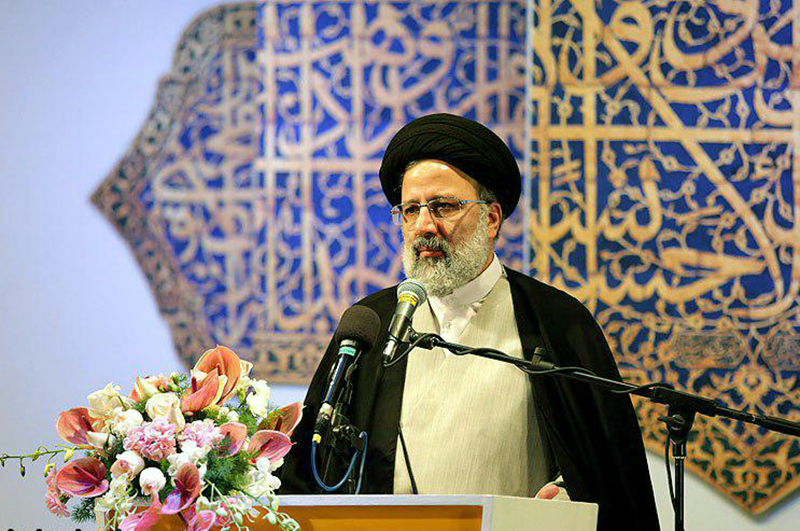
RNA – Speaking at the Topical Exegesis of the Holy Quran Conference held at the Holy Shrine of Imam al-Ridha in Mashhad, Hujjat al-Islam Ebrahim Raeisi, the head of the Astan Quds Razavi charitable foundation, offered his congratulations on the occasion of the birth anniversary of Imam Hasan al-Mujtaba, the grandson of the Prophet Muhammad and the second infallible Imam of Shi’ah Muslims.
The prominent Iranian cleric referred to the verses of the Holy Quran on reasoning and thinking, mankind, history and nature in the Quran and said, “On one hand, in order to increase knowledge and the transformation of mankind during Ramadan, the Quran and the Prophet Muhammad are the builders of dignity.”
He went on to explain the meaning of dignity, saying, “Some define dignity as ‘forgiveness’ and others define it ‘forgiveness before asking for and requesting a need’ and at the same time it is also defined as ‘greatness and magnanimity.’”
Pointing out that in fact the meaning of dignity is for a person who has reached the proximity of the Lord, Hujjat al-Islam Raeisi said, “In reality, any greatness is not dignity and a dignified person is someone who God reigns over his soul.”
Referring to examples of magnanimity in social relationships, the member of the Expediency Discernment Council stated, “Those who oppose the offer of bribes have resistance and from the other side, respect the rights of others, while at the same, they sacrifice their wealth, dignity and even their lives for their goals and ideas. These people are the models of dignified people.”
Emphasizing that forgiveness is a manifestation of dignity, not dignity itself, His Eminence said, “Among those who achieved dignity are the martyrs because when there isn’t a single dignified person, no one can achieve martyrdom and the martyrs were educated about dignity from the homes of the dignified.”
In another part of his speech, Hujjat al-Islam Raeisi referred to the mission of the Prophet Muhammad and its purpose and considered the secret of the success of the Prophet of Islam as his good morals, and stated, “But good morals do not mean dignity because some have good morals to achieve their interests and to consider and consolidate their position and status.”
Noting that any generosity, good morals and respect may not be for God, he stated, “Moral dignity is that all the manifestations of the deeds, behaviours, morals, deeds and thoughts of man are for God.”
His Eminence stated that the Prophet Muhammad, Lady Fatimah and Imam Hasan al-Mujtaba have dignity, “Dignity means that a man has a magnanimity of spirit, personality and disposition and one of the manifestations of this is forgiveness.”
Referring to other examples of dignity in the political arena and in the fight against arrogance, Hujjat al-Islam Raeisi said, “Imam Khomeyni stood against the United States because he was not afraid of the weak powers and this is the manifestation of dignity because when someone stands against the enemies with authority and dignity, they are dignified.”
The former presidential candidate continued, “But if the people are afraid of the enemies and they are submissive in relation to the enemies, they are not really dignified because this issue is an indicator.”
He referred to the two categories of intrinsic and acquired dignity in mankind, saying, “Mankind has an intrinsic dignity because he is human and this applies to all human beings but in regard to acquired dignity, mankind must strive and observe the permitted and forbidden commandments of God.”
Hujjat al-Islam Raesi stressed that the holy month of Ramadhan as the basis for the achievement of human dignity and added, “Piety, the Nights of Power, the Quran and Ramadhan have the potential to nurture dignity.”
He stated that the verses of the Quran build a dignified mankind, “A warrior who engages in struggle against both his soul and his property, in fact, nurtures dignity within himself and at the same time, Imam Hasan al-Mujtaba nurtured dignity.”
Rasa News Agency
112/971